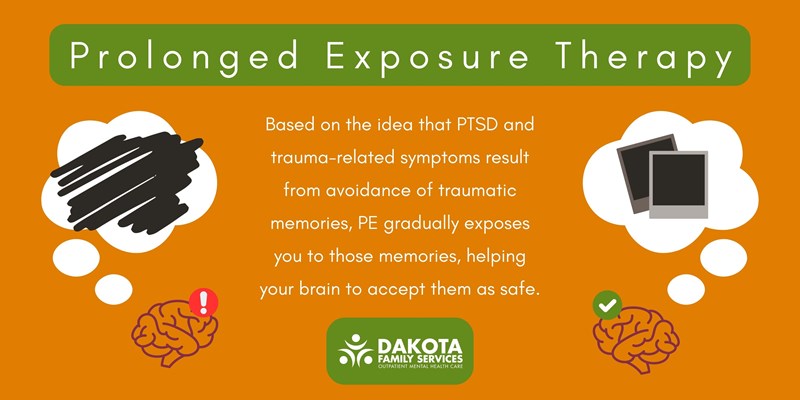Prolonged Exposure Therapy
Definition
Prolonged Exposure (PE) is an effective treatment for teens (about 14 and older) and adults with trauma- related symptoms and/or trauma-related disorders. Prolonged Exposure focuses on the idea that PTSD and other trauma related symptoms are caused by avoidance of thoughts, emotions, memories, and reminders of your trauma. Avoiding these reminders keeps the fear, sadness, anger, etc. away in the short-term. Unfortunately, this strategy can cause and maintain PTSD in the long run. PE (as it is implied in the title) exposes you to your memories in a safe and prolonged fashion in order to decrease reactivity and teach your brain the memory is safe. In addition, you will be exposed to objectively safe reminders of trauma and work through trauma related cognitions.
Key Things to Know About Prolonged Exposure
- Prolonged Exposure is a relatively brief therapy, with estimates of 8-12 weeks from the beginning to the end. Some people with more complex trauma histories may need up to 16 sessions. Sessions are typically 90 minutes long.
- PE is difficult and a lot of work. Trauma treatment is often regarded as the most difficult type of treatment you can do, but it is very worth the short-term difficulties for long term freedom from PTSD. As with other trauma therapies, Prolonged Exposure is really hard. Trauma treatment can make things worse in the short-term (generally speaking, the hardest part is the first 3-6 weeks, but this varies individual to individual). Making things harder in the short term is not a sign it is not working. Strange as it may sound, things getting more difficult for a short period of time is actually a sign the treatment is working.
- PE has been shown to be extremely effective in years of research at the VA and elsewhere. It does not matter if you have one trauma or many. Many people no longer qualify for a diagnosis of PTSD at the end of treatment.
- PE has a validated protocol to work concurrently with DBT if you have difficulty with suicidal and self-harming behaviors along with your trauma reactions.


